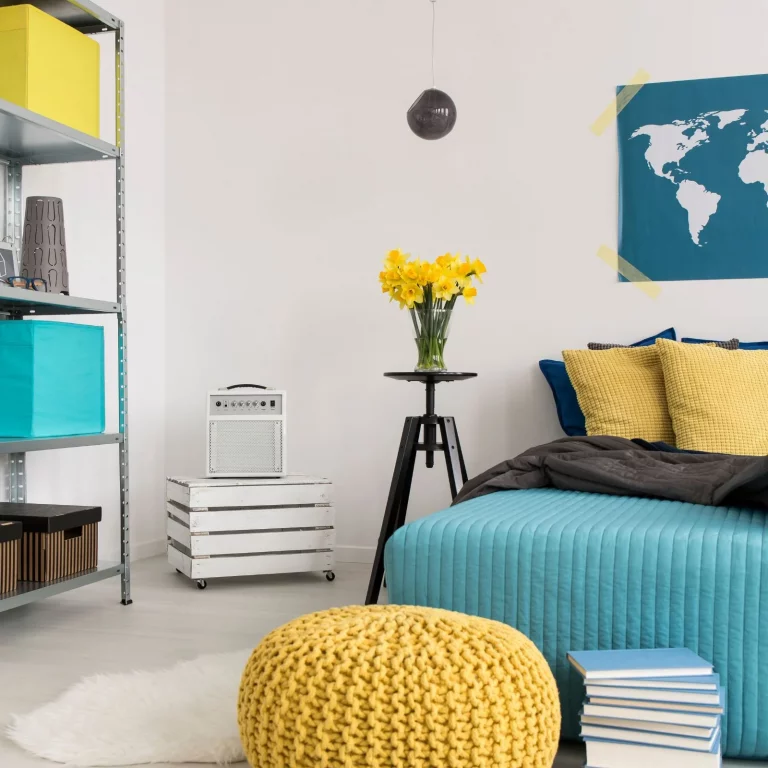Roommate Rules Agreement: Do You Need One?
Moving out with a new roommate is exciting but if you’re planning on sharing a home together, there are a few things you’re going to need to discuss before hand.
You want to know ahead of time what your expectations are going to be and what you’re most comfortable with in your new home. That’s where creating a roommate rules agreement comes in.

What is a roommate agreement?
A roommate agreement is a contract between you and your roommates that outline the rules, responsibilities, and expectations that everyone has.
This document can be as long or as short as you want it to be, but should cover any topics that are important to you and your roommates. Once you’ve created the agreement, everyone should read it over carefully and sign it before moving in together.
It’s rare but some landlords may require you to submit a copy of your roommate agreement with your lease application or at move-in. Even if your landlord doesn’t require one, we still recommend creating one—it could save you a lot of headache down the line!
Why do you need a roommate agreement?
It might seem like overkill but a roommate agreement is ALWAYS a good idea.
The biggest pro in the agreement’s column is the fac that it can help prevent potential disagreements between roommates by laying out expectations ahead of time. If everyone knows, it’s a lot easier to confront issues if they come up.
If conflict does arise, having an agreement in place can provide guidance on how to handle the situation. Planning this ahead of time will help curb further disagreements before they turn into major roommate drama.
Finally, having an agreement shows landlords that you take responsible measures to ensure their property will be well-cared for and can help strengthen your application. You don’t HAVE to show your agreement to the landlord (it’s rarely a requirement), but it’s there if you need it.
What to include in your roommate rules agreement
The sky’s the limit when it comes to what you can include in your roommate agreement. It needs to include anything that both you and your roommates think is important enough to outline. Anything that could cause a conflict at some point. Generally speaking, here are some of the basics you’ll want to consider:
1. Rent and utilities
You’ll want your roommate rental agreement to cover:
- How much does everyone contribute to rent and utilities?
- When is the rent due?
- Who is responsible for taking care of utilities?
- Who actually pays the rent to the landlords?
- How do you split utilities?
- Are there any expenses that are not included in rent?
- What happens if the bills get higher than expected?
2. Household chores
There are still chores that need to be done, even though you’re all adults now. It’ll be best to decide on a weekly or monthly schedule for who does what. Some chores you might want to consider adding to your list include:
- How often do things get cleaned?
- How are larger cleaning tasks be handled?
- Who will be responsible for buying and taking care of supplies?
- What happens if tasks aren’t done when they’re supposed to be?
You can also set up a good ole fashioned chores list for this as well.
3. Overnight guests
Overnight guests are part of the beauty of being an adult. You can have significant others, besties and one-night stands all stay the night. This can be a recipe for disaster if you don’t set some ground rules beforehand. Having an agreement about who is allowed to bring guests, who those guests can be, and how long they can stay over is great.
4. Quiet Hours
Not everyone enjoys the same sound levels in their house. If there are going to be more than one person living in your home, you’ll need to talk about it before hand. For example, if you’re a light sleeper or simply need need peace and quiet to concentrate, it’s important to set some noise level expectations. You should discuss beforehand if there’s going to a quiet time and when that has to happen. Likewise, if you like listening to music or having friends over, let them know what time is appropriate for that so they’re not blindsided later on. Communicating about noise levels upfront will help avoid potential conflict down the line.
5. Pets
Pets are a tricky one because its really up to your landlord whether or not you can have them. However, assuming you can, it’s worth discussing with your roommate. If you can have pets, it’s worth discussing whether or not you want to have a dog. Or if they have allergies or they’re just not a fan of animals. It’s important that you’re on the same page so everyone is happy with the situation.
6. Common areas
Every apartment is going to have common areas, you need to figure out how you can use yours. Presumably it’s a free-for-all, but depending on who you’re rooming with that might not be the case. You need to discuss with your roomie how your common areas are used. You also need to discuss who’s in charge of cleaning up after themselves.
7. Food and groceries
Are you buying your own food or are you splitting the grocery bill? Food can be a complex subject because some people eat three meals a day and other people snack all day long. You need to figure out what the food situation is going to be, because it can get pretty messy if you don’t.
Ready to write your own?
Creating a roommate rules agreement may seem like extra work now, but it can save you time and energy down the road. By taking the time to discuss expectations with your potential roommates and creating an agreement that works for everyone involved, you can set yourselves up for success in your new home!





